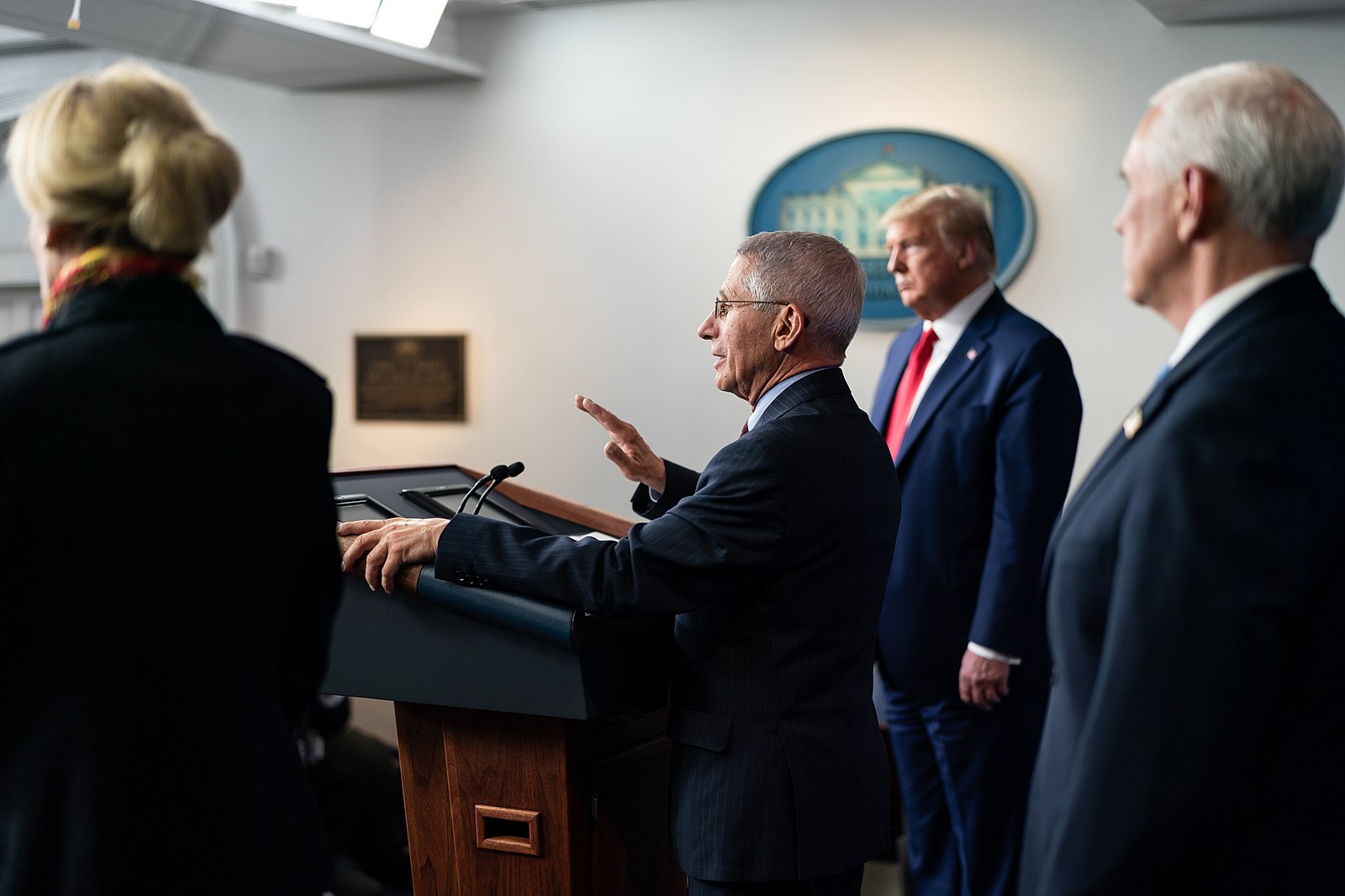As I write this, there have been more than 336,000 reported cases of the coronavirus in the United States, and over 9,600 have died from it. Some experts contend that, in the worst possible case scenario, the virus is capable of killing as many as three million Americans. What makes the coronavirus so deadly is that most people infected with it have no symptoms. Yet they are highly contagious. This is why social distancing, extensive testing, and quarantining those who test positive are essential.
While fighting the coronavirus we can’t lose sight of the threat it poses to our economic livelihood. Undoubtedly, we are in a severe recession. Chances are very good that the United States will soon have unemployment rates reaching 20 percent or more, rates that approach the worst years of the Great Depression.
The traditional economic solution to mass unemployment, promulgated by John Maynard Keynes during the Great Depression, is a fiscal stimulus. However, what we face is not a traditional economic problem. It is a public health crisis. We don’t want people to go back to work. Our goal is to keep people at home. We need to create incomes without creating more jobs, so that people can stay at home and not become infected or infect others.
This is where the $2.2 trillion Covid-19 relief bill signed by President Trump on March 27 comes in. It is not a traditional economic stimulus plan like the New Deal programs of the 1930s. Nor is it like the 2009 financial crisis bailout package, which rescued the U.S. financial system so that money could be borrowed and spent, and the economy could continue to produce goods and create jobs.
The relief bill helps people stay at home
Rather, the 2020 bill gives people money so that they can remain whole during several months of isolation, as well as a few more months while the U.S. economy recovers. It also seeks to keep businesses afloat so that when the health crisis ends people can return to their old jobs. Effectively it is a hibernation plan, giving some hope to Americans that everything will be manageable until we can resume our lives again.
Although bears hibernate for months without any financial worries, people must still pay their mortgage or rent, as well as many other bills, and put food on the table. However, most Americans live from paycheck to paycheck. Very few have sufficient savings to get through several months without work and a source of income. A recent Federal Reserve survey found that 40 percent of households couldn’t come up with $400 to meet an unexpected expense.
This is why the expansion of unemployment insurance (an extra $600 per week, plus making benefits available to the self-employed and part-time employees) is so important. In addition, the $1,200 per person check (plus $500 for each child) helps a great deal. Rather than making this payment universal, like Andrew Yang’s basic income proposal, payments are income dependent. People making $100,000 and above will get nothing. But deciding who gets a check can only be based on an individual’s most recent tax return. Someone who made $110,000 last year gets no check—even if they will make less than half this amount in 2020. Hopefully this flaw will be corrected soon.
Another problem concerns getting money to low-income individuals not required to file tax returns. These people need the money the most of all. Many have no bank accounts and could not easily cash a government check even if they received one.
The pandemic also magnifies the enormous health care problem in the United States. According to the latest data available, 8.5 percent of the U.S. population had no health insurance in 2018. This number will go up substantially given the massive job losses and the fact that many people will lose the health insurance they get through their job. Although Covid-19 testing will be free, and Medicaid will be expanded, many people testing positive for the coronavirus will be on their own because they lack health insurance. Even people with health insurance face the prospect of high co-pays and high deductibles. The relief bill did nothing to deal with these issues. Nor did it do anything to lower the costs of buying health insurance on government exchanges.
The lack of adequate health care makes a second wave of the coronavirus pandemic more likely. We should keep in mind that the 1918 Spanish flu reappeared in 1919 and 1920. Having the nation remain inside and isolated for a second time, and then having to pass another huge relief bill, makes getting back to normal harder and more expensive. For the health of everyone, and for the health of our economy, good insurance coverage against the coronavirus is essential for all.
Fundamental changes in store for the economy
Once an economic recovery begins, it won’t be especially strong, and it will certainly be uneven. Some businesses will benefit from pent-up demand. After months of watching movies on Netflix and purchasing goods on Amazon, people may eagerly return to movie theaters and brick-and-mortar retail outlets. On the other hand, foreign travel is unlikely to rebound for a long time, reducing demand for new airplanes and fuel. And bottlenecks will surely develop. Car parts made in Mexico will not be available to meet U.S. demand for autos until Mexico fully recovers from the coronavirus epidemic.
A greater problem arises if firms don’t survive and people can’t return to their previous job. Developing a new business requires capital, something already in short supply. It is also a time-consuming and difficult endeavor. New startups have very high failure rates. This is why the Covid-19 relief bill supports existing businesses.
Larger firms can survive through refinancing their debt and relying on bankruptcy protection. They also can borrow money somewhat easily. The relief bill made this even easier. It allocated money so the Federal Reserve can purchase trillions of dollars of corporate bonds, enabling it to lend a great deal of money to large and medium-size firms.
Repeating mistakes made during the financial crisis, this aid requires no quid pro quo. If the government bails out firms, it should have more control over the company, including seats on the board of directors and limiting senior executive salaries to some multiple of average firm wages.
Small businesses face more acute problems. Most cannot survive for months and lack the clout to refinance. A typical small business has less than two weeks of cash on hand. Many restaurants and entertainment venues, desperate for cash, have already flocked to online lenders, borrowing at very high interest rates in an attempt to stay afloat. The Covid-19 relief bill allocates $350 billion for small business loans, providing 10 weeks of assistance—a mere Band-Aid. Small firms are already heavily indebted, operate on small margins, and will be crushed by additional debt. If they can’t repay this debt, they will be forced into bankruptcy. A better, more generous solution is needed here and needed soon.
Despite our current problems, there are a few glimmers of hope. China stopped the coronavirus in its tracks after initially fumbling badly by refusing to admit there was a problem or taking appropriate action. After its population spent two months quarantined, China’s economy is starting to revive. In Italy, the growth rate of new coronavirus cases began to slow at the end of March.
And the United States is finally starting to get some things right. While flawed and insufficient, a dysfunctional and polarized government did pass a piece of legislation—made reasonable by the input of an array of progressive groups and Democratic senators—that will aid many people and many business firms. The country will be in lockdown mode for the month of April, and probably May, thereby slowing and hopefully stopping the spread of the virus. For now, we need some patience, additional support for the most vulnerable in our population, a focus on food supply and delivery, and significant attention to our public health system.
The author is professor of economics at Colorado State University, author of Fifty Major Economists, 3rd edition (Routledge, 2013) and Understanding Piketty’s Capital in the 21st Century (Routledge, 2015), and president of the Association for Social Economics.





0 Comments